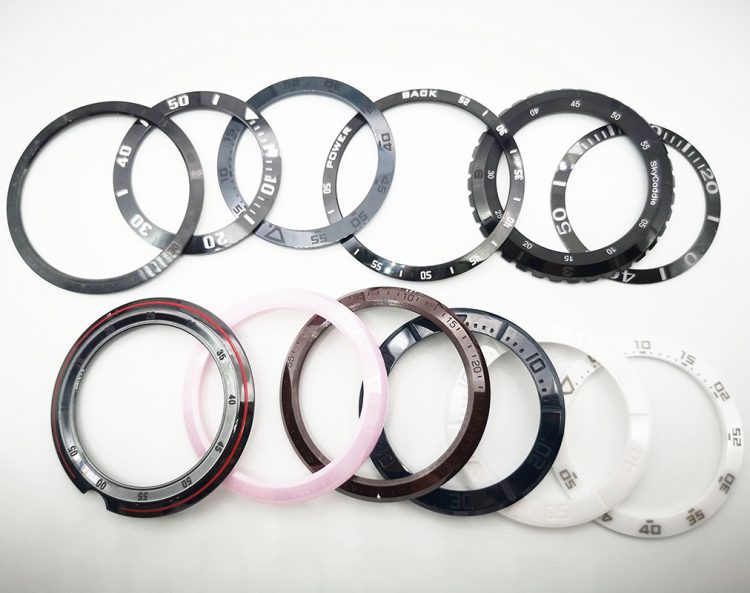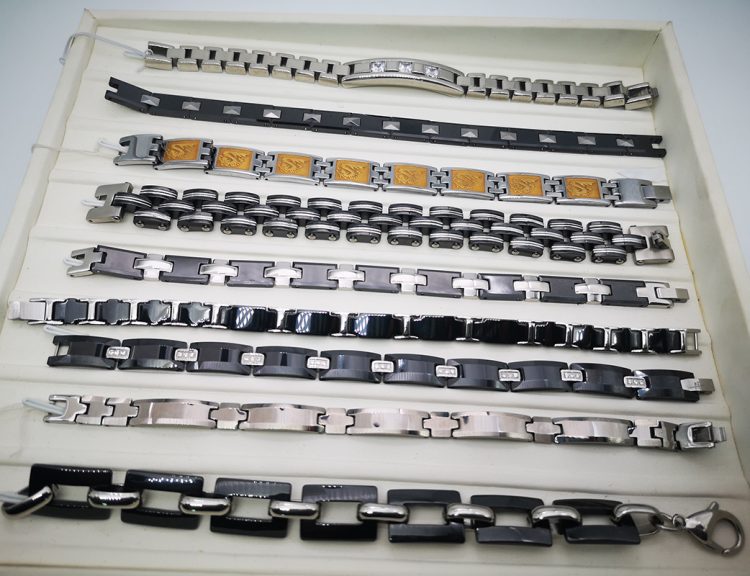

How can a fragile material like ceramics be used to make watches?
Although the most common materials in the watch industry are stainless steel, titanium, precious metals (gold, platinum, rose gold, platinum), etc., one of them belongs to the rising star in the watch material industry - ceramic material, which has sprung up under the attack of the above-mentioned materials in recent years. More and more watch brands have launched their own ceramic watches. Ceramic has become a widely used material in the watch industry.
The ceramics used in the watch industry are generally called “advanced ceramics”, that is, polycrystalline powder (usually made of alumina, zirconia, silicon carbide, etc.) and other auxiliary materials are pressed into the mold through high pressure and fired at high temperature.
High tech ceramic wristwatch has extremely high hardness (up to about 10 times that of refined steel), and ordinary scratch will not leave any trace. In addition, it also has the advantages of light weight, low sensitization and no sweat corrosion.


·Wear resistance and scratch resistance
Compared with metal, ceramic material has high hardness, so if it is scratched by hard objects, it is not easy to produce scratches or wear marks.
For those who have high requirements for the appearance of watches, the application of ceramic materials is a way to avoid trouble, because even if we take care of the watches carefully, there will always be some inadvertent moments that may lead to small defects. Ceramics is one of the sharp tools that can more effectively fight these scratch crises.
·Lightweight
Ceramic material itself has higher hardness than traditional stainless steel or precious metal material, and its density is relatively higher, but its weight is lighter than stainless steel. Therefore, if you want to reduce the burden of wearing a watch on the wrist, ceramic material has become the best choice.
·Skin affinity
Unlike metal, which may cause allergy and discomfort to some wearers’ wrists, ceramic materials feel particularly cold when they are just put on like metal.
At the same time, it has high skin affinity and is not easy to cause allergy when worn, so it can be worn by more people at ease. Moreover, the texture of ceramics like jade also makes it more comfortable and smooth when worn on the wrist.
·Water resistance
Features of metal that are difficult to completely avoid, such as rust and corrosion after long-term contact with moisture and sweat.
Ceramic material is not. Its waterproof effect is more comprehensive and has no worries. Therefore, many sports watches will try to use ceramic material in recent years, which plays a certain role and reason in indirectly improving the waterproof performance of watches.
·Not easy to fade
Whether made of stainless steel or precious metal, wristwatches can’t stand the “honing” of years and daily life. They are easy to scratch and the gloss is weakening day by day. They must be worn with extra care and careful maintenance.
Ceramic materials emit natural luster, and can reach the realm that stainless steel can’t do, such as pure black and pure white. More importantly, such color will not fade with time. This is also the reason why people who pay attention to the appearance integrity of watches want to choose ceramic watches.